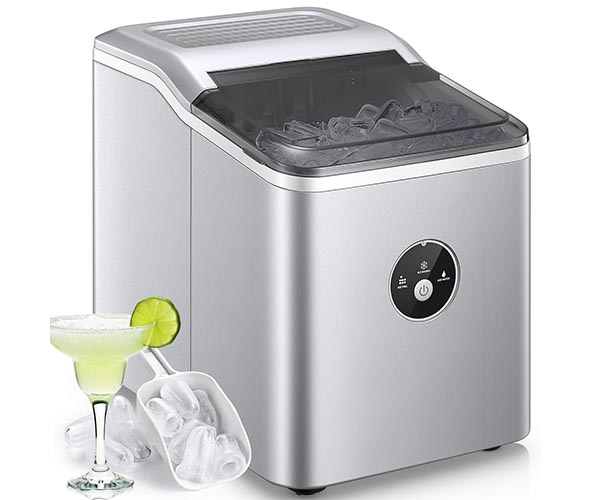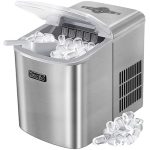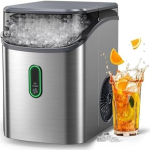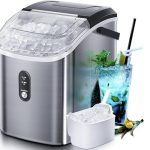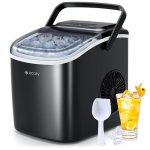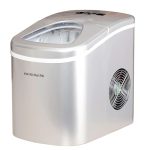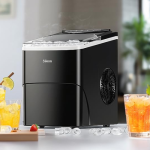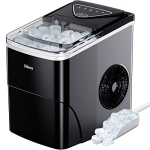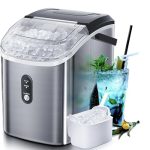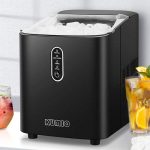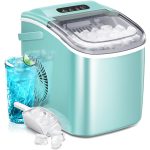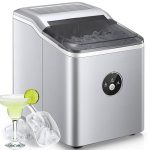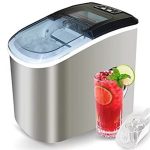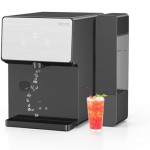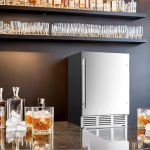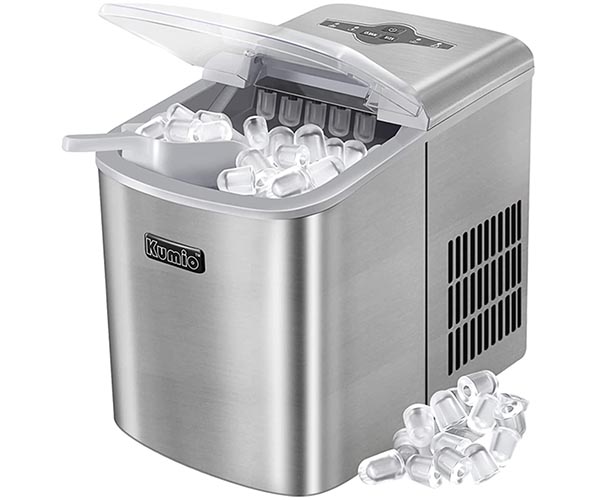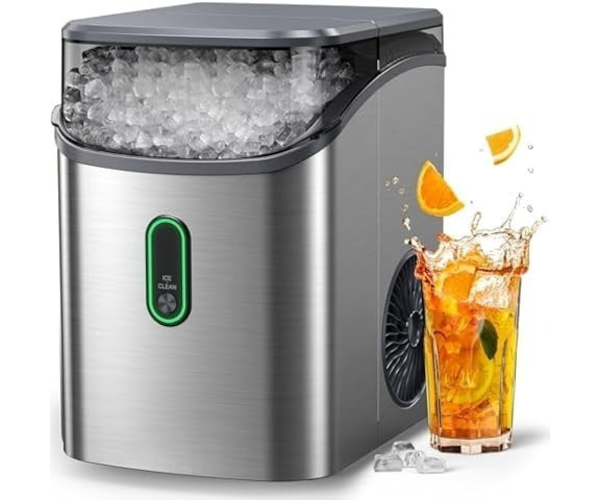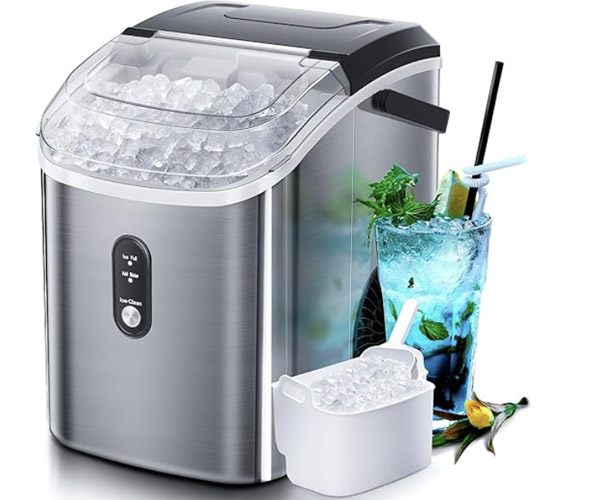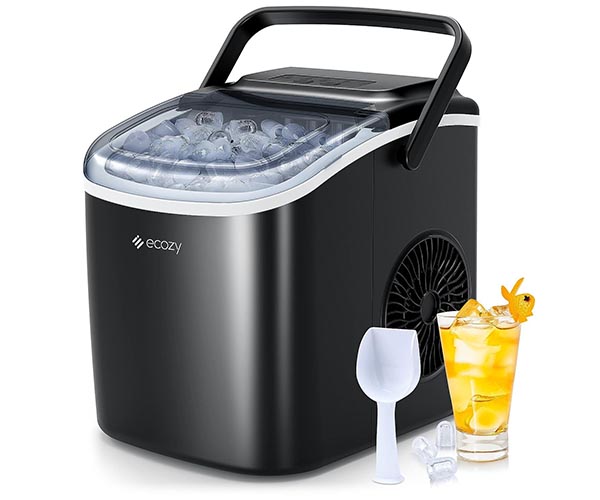Introduction
Imagine hosting a big family gathering, where cool drinks are flowing and laughter fills the air. But just as the party hits its stride, your countertop ice maker grinds to a halt. Suddenly, the ice supply dries up, and drinks start to warm. The culprit? A lack of regular maintenance. This all-too-common scenario underscores the importance of keeping your ice maker in tip-top shape, not just for the big events, but for everyday functionality.
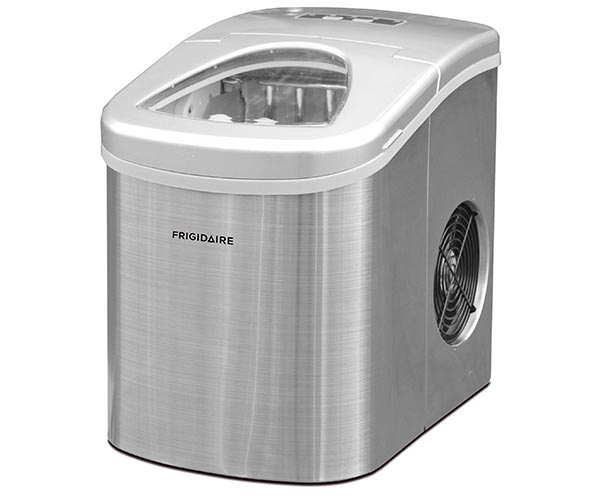
The Importance of Regular Cleaning
Regular cleaning of your countertop ice maker is crucial for several reasons:
- Extends Lifespan: Regularly removing scale and mineral build-up can significantly extend the operational life of your ice maker. Just like any other appliance, a clean ice maker is less likely to suffer from wear and tear or mechanical failures.
- Ensures Ice Quality: The last thing you want is your ice tasting or smelling off. Regular cleaning ensures that the ice produced is always fresh and odor-free, enhancing your beverage experience.
- Improves Efficiency: A clean ice maker works more efficiently, producing ice faster and using less energy. This not only saves time but also reduces your household energy costs.
By integrating simple cleaning habits into your routine, you can avoid the pitfalls of neglect and keep your ice maker functioning flawlessly. Whether you use it daily or occasionally, maintenance is key to ensuring that your appliance remains a reliable resource in your kitchen. https://amzn.to/3WoePQf
Essential Cleaning Frequency
Understanding the optimal frequency for cleaning your countertop ice maker is crucial to maintain its efficiency and extend its lifespan. Let’s explore the general guidelines and factors that determine how often this maintenance should occur.
General Guidelines
As a rule of thumb, it’s advisable to clean your countertop ice maker regularly to prevent build-ups that can impede its performance:
- Monthly Cleaning: At a minimum, aim to clean your ice maker thoroughly at least once a month. This frequency ensures that any potential build-up of minerals or bacteria is addressed before it can become a problem, maintaining the quality of your ice and the efficiency of the machine.
Factors Influencing Cleaning Schedule
The ideal cleaning schedule can vary based on several factors that might require you to adjust how frequently you clean your ice maker:
- Usage Patterns: How often and intensely you use your ice maker can greatly influence the cleaning schedule. Frequent use, typical in warmer climates or during summer months, can lead to faster mineral buildup and contamination, necessitating more frequent cleanings.
- Water Quality: The type of water you use is another critical factor. Hard water, high in minerals, can lead to quicker scale buildup inside the machine’s mechanisms, requiring more frequent descaling and cleaning to keep the ice maker running smoothly.
- Environmental Factors: The environment where the ice maker is located also plays a role. Machines in dusty areas or in kitchens with high levels of airborne grease and other contaminants might need more frequent cleaning to prevent blockages and maintain sanitary conditions.
By adhering to these guidelines and considering the specific needs based on your usage, water quality, and environmental conditions, you can ensure that your countertop ice maker remains in optimal condition, producing clean and fresh ice whenever you need it.
Step-by-Step Cleaning Process
Maintaining your countertop ice maker involves routine tasks that help prevent buildup and more thorough monthly cleanings that ensure deeper issues are addressed. Here’s how to incorporate both into your maintenance routine.
Daily and Weekly Tasks
Regular upkeep will keep your ice maker running smoothly and extend its lifespan. Here are some daily and weekly tasks you can easily perform:
- Daily Surface Wipes: Each day, wipe down the exterior surfaces of the ice maker with a damp cloth to remove dust and prevent grime accumulation.
- Weekly Interior Checks: Once a week, inspect the interior for any visible signs of residue or mold. Use a soft, damp cloth to clean the interior surfaces.
These simple tasks help prevent major buildup and ensure the ice maker remains clean and hygienic, ready for use at any time.
Monthly Deep Cleaning
A more thorough cleaning and descaling should be performed monthly to tackle any issues that regular wiping can’t resolve:
- Unplug and Empty: Always start by unplugging the ice maker and removing any remaining ice and water. This ensures safety and accessibility during cleaning.
- Prepare Cleaning Solution: Use a manufacturer-approved cleaning solution or a homemade solution of equal parts white vinegar and water. This solution is effective at descaling and sanitizing without harsh chemicals.
- Apply Cleaning Solution:
- Fill the water reservoir with your chosen cleaning solution.
- Run a cleaning cycle according to the ice maker’s manual. This allows the solution to circulate through all parts and effectively remove scale and buildup.
- Wipe Down Interior Components:
- After the cycle finishes, remove any components that are accessible, such as the ice bin and any removable trays or parts.
- Wash these components in warm, soapy water, then rinse thoroughly with clean water.
- Rinse the System:
- Run at least two full cycles with clean water to rinse away any remaining cleaning solution and debris from the ice maker. This step is crucial to ensure no cleaning residue remains that could impact the taste or quality of the ice.
- Dry and Reassemble:
- Dry all components thoroughly with a clean, dry cloth or let them air dry before reassembling the ice maker.
- Ensure everything is correctly fitted and secure to prevent operational issues.
- Final Check and Restart:
- Once reassembled, plug in the ice maker and run a test cycle to check for normal operation.
- Discard the first batch of ice produced after cleaning to ensure it is free from any cleaning agents or residue.
By following these detailed steps for daily, weekly, and monthly maintenance, you can significantly enhance the performance and longevity of your countertop ice maker. Regular maintenance not only keeps the machine running efficiently but also ensures that the ice produced is always clean and fresh. https://amzn.to/3WoePQf
Choosing the Right Cleaning Agents
Selecting appropriate cleaning agents for your countertop ice maker is critical for ensuring the device’s safety and longevity. Here are some recommendations for both commercial and DIY cleaners, as well as advice on what to avoid.
Safe Commercial Cleaners
For those preferring ready-made solutions, there are several commercial products specifically designed for cleaning ice makers. These products are effective and safe for use on the sensitive components of your machine:
- Affresh Ice Maker Cleaner: This cleaner is formulated to remove lime and mineral build-up that can occur in all ice machines. It ensures safe, effective cleaning and leaves no odor or residue.
- Nu-Calgon Ice Machine Cleaner: A professional-grade cleaner, this product is designed for machines with nickel-plated or tin-plated evaporators. It effectively removes scale and mineral deposits, ensuring optimal performance.
- EcoLab Guardian Plus Ice Machine Sanitizer: Not only does this product clean, but it also sanitizes, reducing pathogens and mold that can cause health issues and affect the taste of your ice.
DIY Natural Cleaners
For those who prefer natural solutions, there are effective and environmentally friendly options that can be made with household ingredients:
- Vinegar Solution: Mix one part white vinegar with one part water. Vinegar is excellent for dissolving mineral buildup and acts as a natural disinfectant.
- Lemon Juice Mixture: Combine one part lemon juice with three parts water. Lemon not only naturally breaks down scale but also leaves a fresh scent.
Both solutions should be used to fill the reservoir and run through a cleaning cycle, followed by several rinse cycles with plain water to ensure all residue is removed.
What to Avoid
It’s crucial to avoid certain common household cleaners that can damage your ice maker or leave harmful residues:
- Bleach: Highly corrosive and can damage the internal components of your ice maker, potentially leading to costly repairs or replacements.
- Ammonia-Based Products: These can be too harsh for the delicate parts of your ice machine and may degrade materials over time.
- Abrasive Cleaners: Scrubbing powders or pads can scratch surfaces, creating crevices where bacteria and mold can accumulate.
By choosing the right cleaning agents, whether commercial or DIY, and avoiding harmful chemicals, you can effectively maintain your ice maker without compromising its functionality or the quality of ice produced. Regular use of appropriate cleaners will keep your machine running smoothly and extend its lifespan.
Troubleshooting Common Issues
When your countertop ice maker begins to exhibit issues, knowing how to identify and address these problems can save you time and ensure continued functionality. Here’s how to troubleshoot common issues like slow ice production, strange noises, or poor ice quality.
Identifying Problems
- Slow Ice Production: If your ice maker takes longer than usual to produce ice, check for any signs of scale buildup or clogged filters. Ensure the water supply is adequate and that the freezer temperature is set correctly.
- Strange Noises: Unusual sounds such as clicking, grinding, or whirring can indicate mechanical issues. Inspect the ice maker for any loose components or blockages in the moving parts.
- Poor Ice Quality: If the ice is cloudy, small, or tastes bad, this could be due to dirty water filters, low water flow, or the need for descaling. Check and replace water filters if necessary and clean the machine thoroughly to remove any impurities or mineral deposits.
When to Call a Professional
While many ice maker issues can be resolved with DIY maintenance, there are times when professional assistance is necessary:
- Recurring Issues: If the same problems persist despite your troubleshooting efforts, this may indicate a deeper mechanical issue that requires expert diagnosis.
- Electrical Problems: Any issues related to the ice maker’s power supply, electronic controls, or wiring should be handled by a professional to avoid the risk of electrical shock or further damage to the machine.
- Leaks or Major Malfunctions: If you notice water leaking from the ice maker or if it stops working altogether, professional repair is needed. Leaks can lead to significant water damage, and complex mechanical failures require specialized skills and tools to fix.
Knowing when to tackle problems yourself and when to call in a professional can help maintain the longevity and efficiency of your countertop ice maker, ensuring it continues to produce high-quality ice whenever you need it.
Maintaining Your Ice Maker Post-Cleaning
After you’ve thoroughly cleaned your countertop ice maker, proper post-cleaning care is essential to ensure the appliance continues to operate efficiently and produce high-quality ice. Here are some tips on how to handle your ice maker after cleaning and maintain its performance between cleaning sessions.
Post-Cleaning Care
Following a deep clean, it’s crucial to reassemble and prepare your ice maker for regular use correctly:
- Dry Thoroughly: Before reassembling, make sure all parts are completely dry to prevent ice clumping and mold growth. Use a soft, dry cloth or allow the parts to air dry in a well-ventilated area.
- Reassemble Correctly: Ensure all components are securely and correctly placed. Improper assembly can lead to leaks, poor performance, or damage to the machine.
- Sanitize Ice Storage Bin: Even if it’s been cleaned, give the ice storage bin an additional sanitize wipe-down before putting it back to remove any residual germs or bacteria.
- Run a Test Cycle: Once reassembled, run a test cycle without adding any cleaning solution. Discard the first batch of ice produced after cleaning to ensure that no cleaning residue remains.
Regular Maintenance Tips
To keep your ice maker in optimal condition between thorough cleanings, follow these regular maintenance tips:
- Regular Visual Inspections: Regularly inspect your ice maker for any signs of scale buildup or unusual residues. Catching these early can prevent bigger issues.
- Change Filters Regularly: If your ice maker has a water filtration system, replace the filters as recommended by the manufacturer to ensure clean, fresh-tasting ice and efficient operation.
- Adjust Settings as Needed: Depending on usage patterns and ambient conditions, you may need to adjust the settings of your ice maker to ensure it operates efficiently.
- Keep the Area Clean: Maintain cleanliness around the ice maker. Dust and debris in the vicinity can get into the machine and affect its operation.
- Proper Storage: If you plan on not using your ice maker for an extended period, clean and dry it thoroughly before storing it. Cover it to protect it from dust and store in a cool, dry place.
By following these post-cleaning and regular maintenance tips, you can significantly extend the life of your countertop ice maker, ensuring it remains efficient and effective in producing high-quality ice whenever you need it.
Frequently Asked Questions About Countertop Ice Maker Maintenance
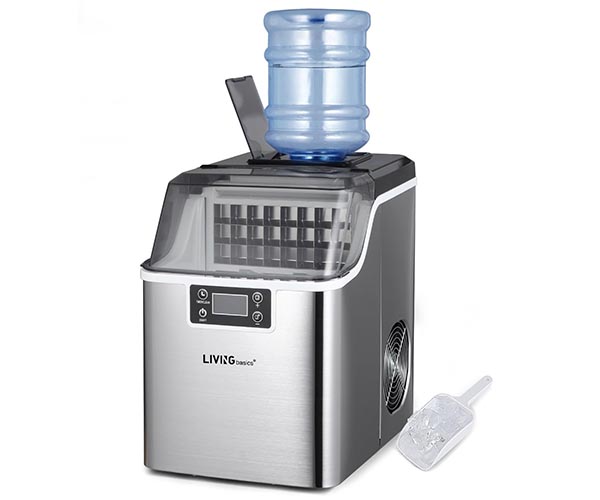
1. How often should I clean my countertop ice maker?
Answer: It’s recommended to clean your countertop ice maker at least once a month to ensure it remains in optimal condition. If you have hard water or use the ice maker very frequently, consider increasing the cleaning frequency.
2. What is the best cleaner to use for a countertop ice maker?
Answer: For safe and effective cleaning, use a commercial ice maker cleaner that’s specifically formulated for such appliances. Alternatively, a solution of equal parts white vinegar and water is an effective and natural option.
3. Can I use bleach to clean my ice maker?
Answer: No, avoid using bleach as it is too harsh for the components of your ice maker and could lead to damage. Stick to recommended cleaners or mild, natural solutions like vinegar or lemon juice.
4. How do I know if my ice maker needs professional servicing?
Answer: If you notice persistent issues like slow ice production, poor ice quality, or strange noises even after regular cleaning, it may be time to call in a professional. Also, consider professional help if you suspect electrical or mechanical problems.
5. What should I do immediately after cleaning my ice maker?
Answer: After cleaning, thoroughly dry all components before reassembling the ice maker. Run a few cycles and discard the first batch of ice to ensure all traces of the cleaning agent are gone.
6. How can I prevent mold and odor in my ice maker?
Answer: Regular cleaning is essential to prevent mold and odors. Ensure the ice storage bin is dry and clean before use, and keep the water in the reservoir fresh by changing it regularly. Using a water filter can also help by reducing impurities and contaminants.
Conclusion
In summary, maintaining your countertop ice maker is essential not only for ensuring it operates efficiently but also for guaranteeing the quality of ice it produces remains high. Here are the key points we’ve covered:
- Regular Cleaning Schedule: Clean your ice maker at least once a month to prevent buildup and address any potential issues early. Increase the frequency if you use the machine heavily or have hard water.
- Appropriate Cleaning Agents: Use either commercial cleaners specifically designed for ice makers or natural solutions like vinegar or lemon juice to keep your machine in top condition. Avoid harsh chemicals such as bleach that can damage the appliance.
- Routine Maintenance Tasks: Incorporate simple daily and weekly maintenance tasks to prolong the life of your ice maker and ensure its continual readiness for use.
- Professional Help: Recognize when DIY cleaning and maintenance fall short and when it’s time to call in professionals, especially for complex issues or when preparing the machine for extensive use.
- Post-Cleaning Care: After each cleaning, ensure that all parts are dried and reassembled properly, and run a test cycle to make sure everything is functioning correctly.
Call to Action
Now that you are equipped with these tips, take the initiative to implement them into your regular maintenance routine. Schedule your next cleaning session today, and maintain a calendar reminder to keep your countertop ice maker clean and functional. Remember, a little maintenance goes a long way in ensuring the longevity and efficiency of your appliance. Don’t wait for the signs of trouble; proactive care is the key to trouble-free use.
Additional Resources
For those looking to delve deeper into the maintenance of their countertop ice makers or seeking professional assistance, here are some valuable resources:
Links to Maintenance Guides
- Ice Maker Cleaning and Care Guide: Websites like IceMakerGeeks and CompactAppliance offer comprehensive guides and articles on the best practices for ice maker maintenance. These resources provide detailed instructions on routine cleanings and troubleshooting tips.
- Manufacturer’s Websites: Always check the website of your ice maker’s manufacturer for the most specific maintenance information. Brands often provide digital copies of their manuals, which include model-specific maintenance tips.
Professional Services
For those who prefer or require professional assistance for their ice maker maintenance:
- Sears Home Services: Offers nationwide repair services and specializes in a wide range of appliance maintenance, including ice makers. You can schedule an appointment directly on their website Sears Home Services.
- Mr. Appliance: Known for reliable and quick service, Mr. Appliance has technicians trained in a broad array of appliance repair tasks. Visit Mr. Appliance to find local services.
- Local Appliance Repair: Check local listings for appliance repair services that offer specialized care for kitchen appliances like ice makers. Local services often provide quicker responses and personalized care.
These resources can help you ensure your countertop ice maker remains in optimal condition, whether you prefer to handle maintenance yourself or through professional services. https://amzn.to/3WoePQf
References
- GE Profile Opal Nugget Ice Maker Product Page
- NewAir Countertop Ice Maker Product Page
- Igloo ICEB26HNBK Portable Electric Countertop Ice Maker Product Page
- Scotsman SCN60PA-1SS
- EUHOMY Nugget Ice Maker Countertop
- Silonn Ice Maker Countertop
Additional Resources
- [How often should you clean your countertop ice maker?]
- [What happens if you don’t clean your countertop ice maker regularly?]
- [How does a countertop ice maker work?]
- [How to install a countertop ice maker?]
- [How often to descale a countertop ice maker?]
- [Buying Guide: Countertop Ice Makers with Water Line Connection]
- [Kitchen Upgrade Ideas: Countertop Ice Makers with Water Line]
- [Which countertop ice maker with freezer is best?]

